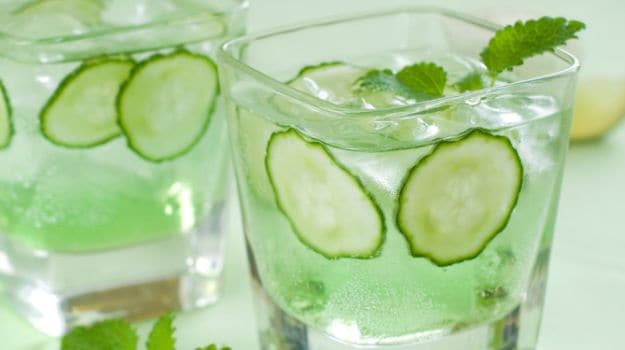7 Food Facts You Need to Know to Stay Healthy
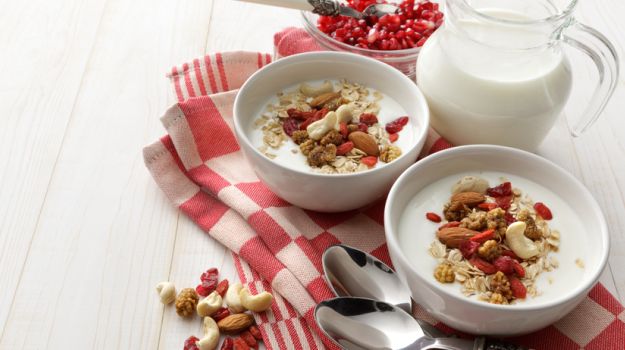 These days, people have become increasingly aware of their need to lead a healthier lifestyle. This often means consciously making better choices throughout the day. When it comes to nutrition, much has been said on the subject, from mere hearsay to evidence-based research. Differentiating between the two can sometimes pose a challenge. So here are seven food facts for you, backed by research, many of which have been traditionally known in different cultures but only recently validated by science.1. Some Fats are Good
These days, people have become increasingly aware of their need to lead a healthier lifestyle. This often means consciously making better choices throughout the day. When it comes to nutrition, much has been said on the subject, from mere hearsay to evidence-based research. Differentiating between the two can sometimes pose a challenge. So here are seven food facts for you, backed by research, many of which have been traditionally known in different cultures but only recently validated by science.1. Some Fats are Good
While saturated and trans fats should be limited or avoided, unsaturated fats (polyunsaturated or monounsaturated) contain important fatty acids that help lower “bad” LDL (low density lipoprotein) cholesterol while increasing “good” HDL (high density lipoprotein) cholesterol. One way to include good fat in your diet is to use canola oil for cooking. It has the least amount of saturated fat compared to other commonly used oils, making it ideal for a range of uses from salads to sautéing.

2. Edible Seeds are Nutritious
Eating just one tablespoon of chia seeds will give you 19 percent of your recommended daily fiber intake in addition to calcium, magnesium, iron, essential fatty acids and antioxidants. Flaxseeds are rich in omega-3 and omega-6 fatty acids, vitamins B1, B2 and B6, and other nutrients that help boost your energy and benefit your nervous system, immune system and blood. Pumpkin seeds, usually roasted before eating, are a great source of zinc, copper and selenium. Eating two tablespoons of pumpkin seeds will give you about 25% of magnesium, a mineral that plays a key role in about 300 metabolic reactions in the body.
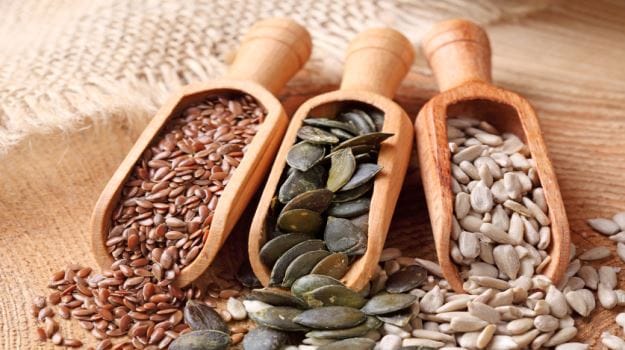
3. Proteins are Building Blocks
Proteins are an important part of every cell in the human body and play a vital role in the formation and repair of cells. For this reason, you need to ensure that 10 to 35 percent of your daily calorie needs are met by protein. For example, the average 60-kilogram Indian male needs 60 grams of protein (25 percent) and the average 55-kilogram female needs 55 grams. Eggs, lean meat, beans, dairy, nuts and lentils are good protein sources.
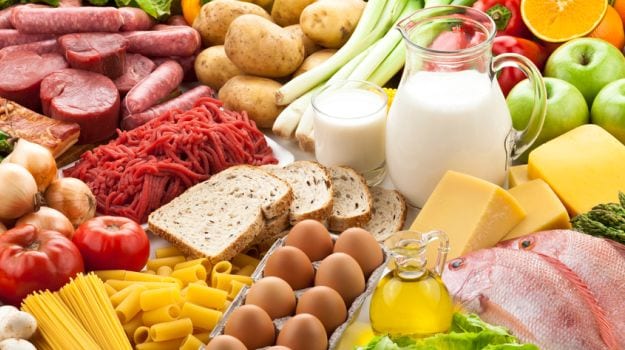
4. Eat Five Vegetables and Fruits a Day
We have evidence to show that you need to include five daily portions of vegetables and fruits combined together. Five portions equates to about 400 grams a day. From everyday problems like constipation and indigestion to the more serious conditions such as heart disease and cancer, fruits and vegetables go a long way in helping lower your risk.
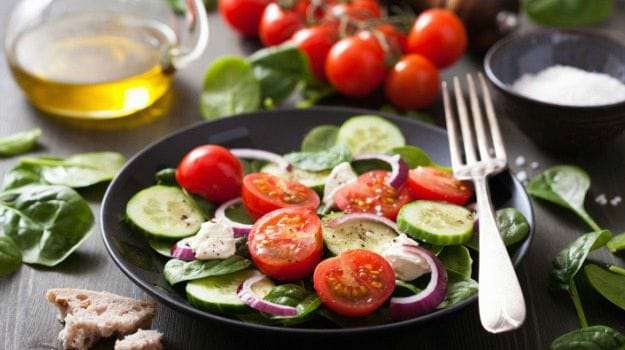
5. Nuts Provide Healthy Fat and Energy
Nuts are rich in unsaturated “good” fats. Additionally, walnuts, peanuts and almonds are rich in fiber that help digestion, plus walnuts are rich in omega-3 fat. Keep in mind though that nuts are high in calories (10 almonds will give you 85 calories while 10 cashews add 95 calories), so it is important to eat them in moderation. An ounce or a handful of nuts is around 160 cal with 6gm of protein and 3g of fiber, which makes it an ideal choice for snacks.
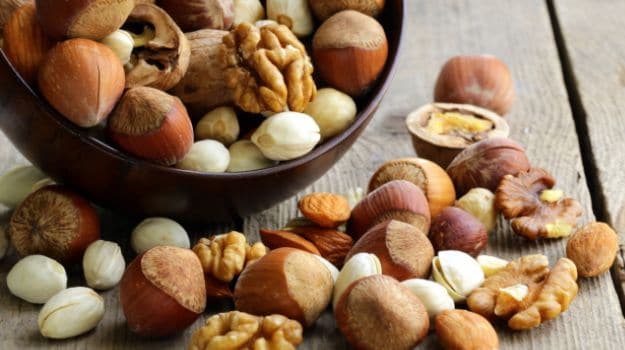
6. Wholesome Whole Grains
Whole grains such as brown rice, whole wheat pasta and multigrain bread are rich in nutrients since they contain insoluble fiber that helps keep the bowels healthy. Fiber also fills you up, making these foods a good option if you are looking to lower calorie intake and lose weight. Bajra, jowar, ragi and wheat are also rich in fiber (more than 10 grams per 100 grams of food) and can be used to make rotis and porridge.
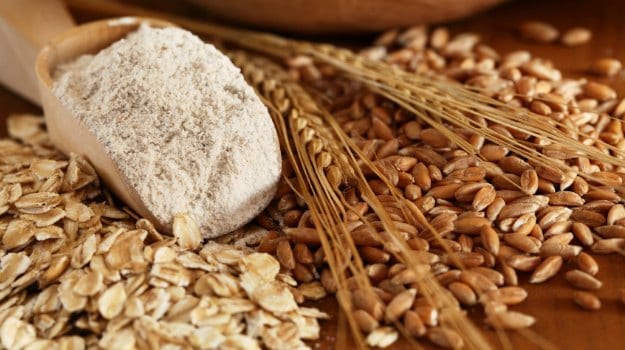
7. Thirst is Not Necessarily Hunger
It is easy to think you are hungry when your body simply needs water. Drinking six to eight glasses of water a day will help you stay hydrated, though Indian summers may require you to drink a little more. If you want an occasional alternative, try water with a slice of lemon or a glass of skim milk, fruit tea, plain tea or unsweetened fruit juice.
